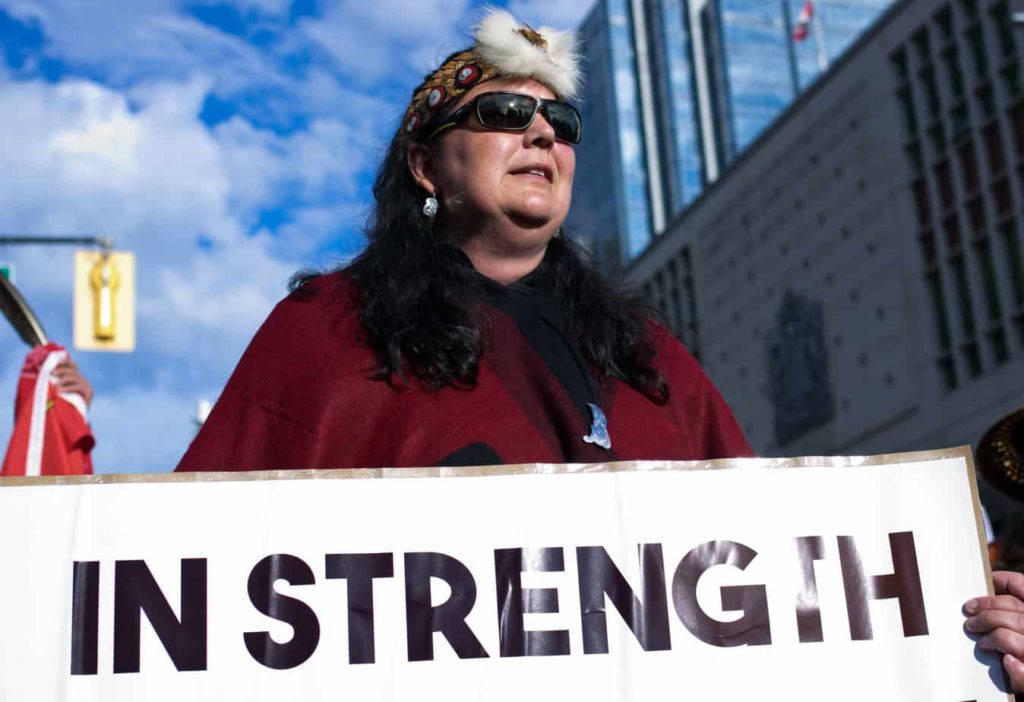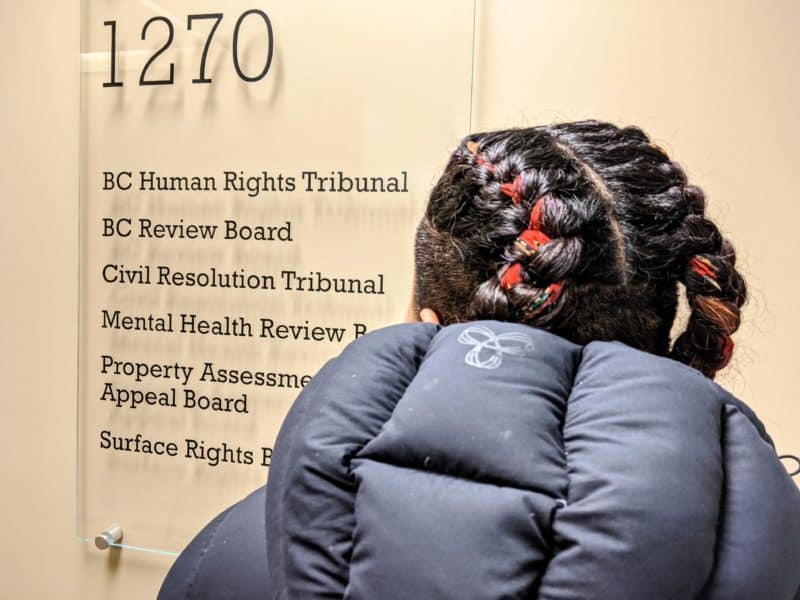
This is from our Urban Nation newsletter. You can subscribe here.
After a successful string of stories on the theme of culture, it’s time for us to embark on another set of stories on a new theme, and we need your help.
Because here at The Discourse, we want to know what matters most to you. You tell us what the news is and what needs investigating; we don’t tell you.
So, after listening to urban Indigenous people from all walks of life these past several months, and unpacking and studying your interviews, we’ve arrived at a new set of themes for you to consider.
Here are the five themes you told us matter most to you right now.
Cast your vote for the theme you’d like us to investigate next. After a week’s time, the theme with the most votes will be the one that we dig into for our next set of stories.
Here are the themes:
Voting will be open for exactly one week until midnight on April 9. We’ll tally the votes on Wed, April 10 and tell you the winning theme in this newsletter next week. Cast your vote now!
And if you would like to answer our community interview questions to help identify the themes for our fall vote, click here.
People are talking about
- CBC News is reporting that Prime Minister Justin Trudeau has kicked MPs Jody Wilson-Raybould and Jane Philpott out of the Liberal caucus.
- The Ubyssey reports that vandals at the University of British Columbia removed several stakes from the ground surrounding the campus’ Reconciliation Pole and forcibly inserted them into the pole. Campus RCMP is investigating.
- In this Vancouver Sun story, the RCMP say that a preliminary review of its records did not identify any cases of Indigenous women who were forced or coerced into sterilization. The Saskatoon Health Authority apologized in 2017 after Indigenous women there said they were coerced. Committees in the Senate and House of Commons are investigating.
- Windspeaker is reporting that several Inuit artists are withdrawing from the Indigenous Music Awards because they say a First Nations artist has culturally appropriated throat singing.
- According to this report in the Globe and Mail, the city of Richmond Hill, Ontario refuses to open its city council meetings with a territorial acknowledgement of local Indigenous communities.
What you love

Cecilia Point knows she will never be alone. In her community, someone always has her back, she says.
Cecilia works at Indigenous Tourism Canada and is a spokesperson for the Musqueam nation. Last month, she was awarded for her activism by Burnaby’s Spice Radio for speaking out against racism.
What she loves most about her tight-knit home community is the security and comfort of people being there for one another. “You’re never alone, I mean, I have something I know I will never have to worry about.”
“I often find that a lot of my single friends, especially if they get to be my age, they’re completely alone. Like all the time. Alone,” she says.
And they often talk about needing to find and join groups because they don’t have any friends, she continues. “I find that, unusual, you know, about people who are not from my community.”
Cecilia sees the younger members of the community now being taught what she holds so dear –– to take care of the people around her.
“When we have gatherings, they have to go get their food for the elders first, and they have to clean up and check on people and you know it’s just sort of a given that our community — people look after each other.”
“If I do fall, and fall down, someone will find me,” she says.
Meet our intern

There’s what you learn about Indigenous people in journalism school, then there’s what you learn about them by working with and listening to them.
Journalism student Cloe Logan joined The Discourse as an intern in Vancouver in March, and will be working with us for five weeks. The 22-year-old has been studying journalism at Langara and will graduate from the college’s two-year program this spring. You may have noticed her byline in this newsletter the last few weeks.
Cloe’s connection to The Discourse started last year, when she came across a child-welfare story written by reporter Brielle Morgan, whom she later sought out and interviewed for a school assignment about journalism objectivity. Cloe became more interested in The Discourse after listening to reporter Wawmeesh Hamilton lecture her journalism class in March about reporting on Indigenous people and communities. “It made me think about news stories differently,” she says. “The Discourse taught me to look deeper and be more critical about sources and quotes.”
The Discourse covers news about the Lower Mainland’s Indigenous community, something Cloe — who grew up in the Lower Mainland — had only a passing familiarity with. But she’s delved into it, and is now working on a story for our upcoming series on inauthentic Indigenous souvenirs, as well as doing community interviews as part of our public engagement process.
“I’m amazed at this process. I’ve learned that non-Indigenous journalists can’t engage with stories without this context,” Cloe says. “Indigenous people are complex and have different views, and you need to be aware of that.”
Cloe says she learned how to write ledes, headlines and cutlines in school, but that her real education started at The Discourse. “I learned that the education system I grew up in lacked the context to produce journalists who can responsibly report Indigenous stories,” she says.
Let’s gather
- April 5 to May 25: Reclaiming our Roots is an exhibit by the Indigenous Women Artists collective featuring works by 11 artists about “tradition and the contemporary development of Indigenous practices as working Indigenous women artists with evolving creative practice.” Friday’s opening night is from 6 to 9 p.m. at Gallery Gachet.
- April 5 to January 2020: There is Truth Here: Creativity and Resilience in Children’s Art from Indian Residential and Day Schools features art created by children who survived residential schools in Manitoba and British Columbia. Opening at the Museum of Vancouver after a run in Victoria, the exhibit offers a rare view into the experiences of some of the children, and “seeks to contribute in vital and new ways to dialogues and initiative about truth telling, reconciliation, and redress in Canada.” Semiahmoo artist Roxanne Charles’ accompanying exhibit will offer a response and counterpoint to the show.
- April 6: Walk the Talk: Vancouver for Bill C-262 is a rally in support of Bill C-262, a federal bill that would ensure Canadian laws align with the United Nations Declaration on the Rights of Indigenous Peoples. The event starts at 1 p.m. at 700 Hamilton St. Keep an eye on the Facebook event for more details.
- April 8: Cease Wyss leads a Tea blending workshop as part of Yúusnewas’ Culture is Healing Series, which gives urban Indigenous youth an opportunity to connect with traditional spiritual and cultural teachings. The event is from 6 to 9 p.m. at YouthCo and is free for all self-identifying Indigenous youth of all sexualities, genders and abilities between ages 14 and 29. Participants are encouraged to RSVP here.
If you know about an event that you think should be included in this newsletter next week, send me an email.
And you like this newsletter, help us build this community by inviting your friends to subscribe. We value your feedback.[end]



